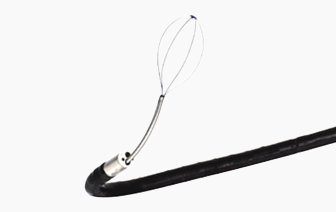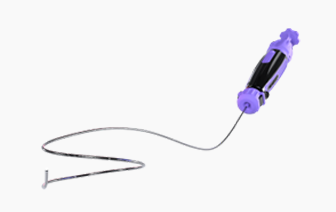
 Surgeons at Vanderbilt University Medical Center (VUMC) have successfully completed the first-in-human clinical trial of a surgical robotic device developed by a Vanderbilt engineer to advance precision and control when removing kidney stones.
Surgeons at Vanderbilt University Medical Center (VUMC) have successfully completed the first-in-human clinical trial of a surgical robotic device developed by a Vanderbilt engineer to advance precision and control when removing kidney stones.
The device is the first-known independently steerable kidney stone retrieval device, enabling more effective maneuvering around anatomical structures to reach stones in difficult-to-access locations within the kidney. The initial design for the device was developed by Robert Webster, the Richard A. Schroeder Professor of Mechanical Engineering through the Vanderbilt Institute for Surgery and Engineering (VISE).
Vanderbilt surgeons Nicholas Kavoussi, assistant professor of urology, and Ryan Hsi, associate professor of urology, led the clinical trials of the FlexStone Basket, which is being commercialized by EndoTheia, Inc. Webster is co-founder and president of EndoTheia.
“The achievements of Drs. Kavoussi and Hsi, and the entire team at EndoTheia, VUMC, and VU, underscore the university’s commitment to pioneering transformative medical solutions that empower physicians and improve patient care,” Webster said.
Kavoussi said the device has the potential to transform how surgeons approach complex kidney stone cases by reducing procedural complexity and improving patient outcomes. Hsi added, “This is a significant advancement in urological care that we’re excited to be a part of.”
Results from the clinical trial will be presented at the American Urological Association (AUA) Annual Meeting in April 2025.